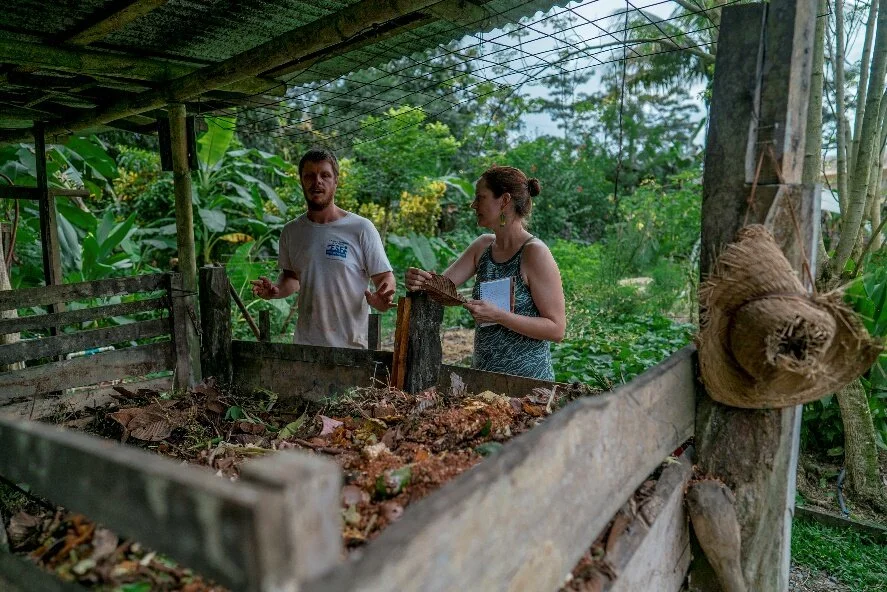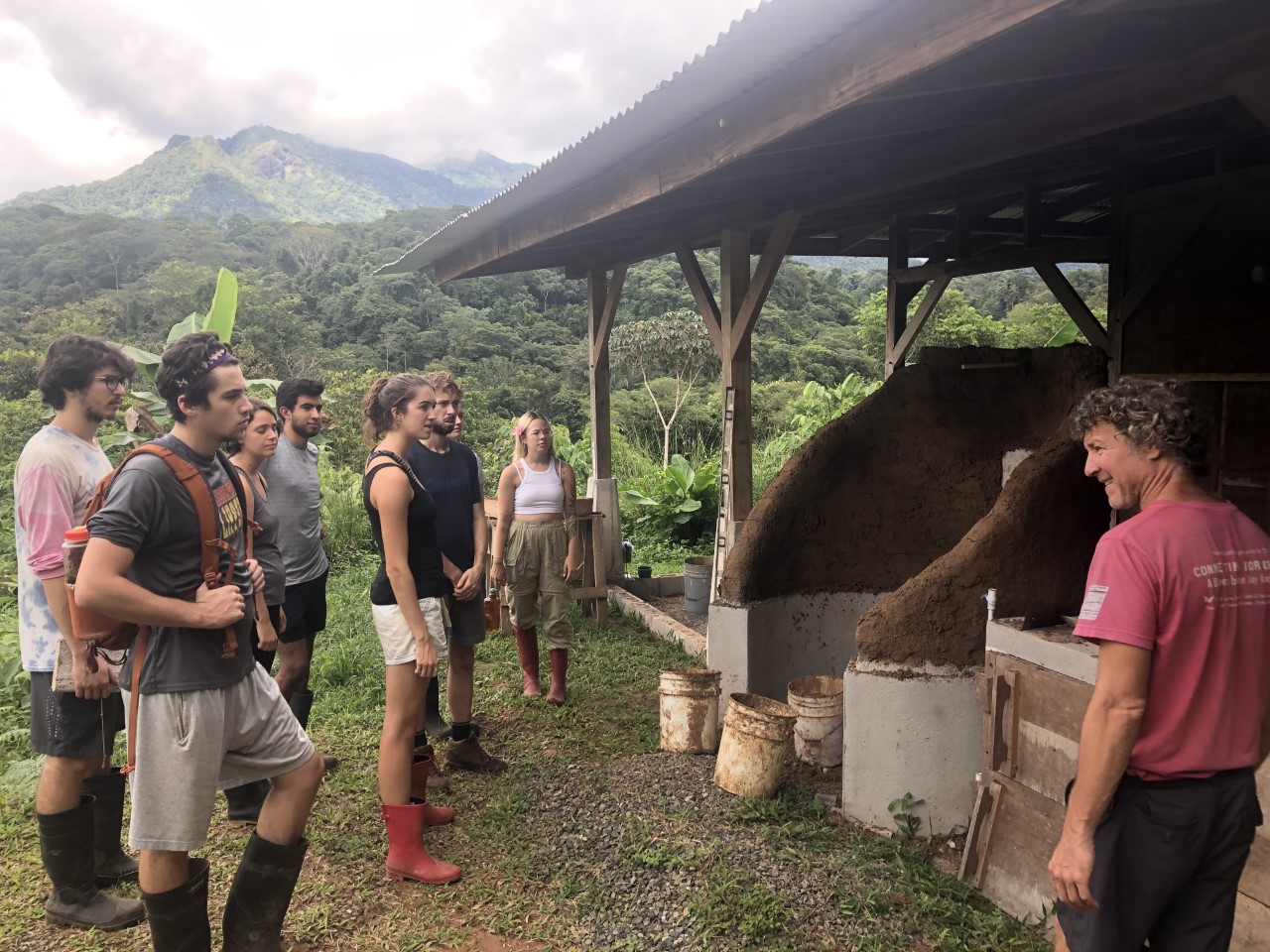Awakening the student and teacher in us all
By Mary Little, School for Field Studies
I like to think I’m open-minded and my ideas flow freely, but as a professor I can become stuck in the rigid model of preparing lectures, grading and academic writing. The opportunity to have my sense of wonder reawakened and be reminded that there are so many springs of knowledge available in the world in invaluable. Rancho Mastatal reminds me of this truth and has inspired every student I have brought to think bigger, make connections and consider what their role in addressing the climatic challenges we face.
Nic Explaining the kitchen compost system
I am always looking for places that exemplify the principles of ecological justice we cover in my Environmental Ethics courses. Upon my first scouting trip to Rancho Mastatal I was introduced to a holistic education experience that I was eager to share with my students. It has inspired us to carry out research on the impacts of ecotourism on the local population and environment that can be used to ensure sustainable development. This community is a clear example of the possibilities and challenges of harnessing the abundance of local materials to feed, house and entertain themselves by collaborating with surrounding ecosystems.
This balance extends beyond ecological principles to Rancho Mastatal’s place in the community. Over nearly 20 years they have learned to listen and become a positive player that works with the needs of the committee to provide work, classes and support projects that are deemed meaningful by residents. Robin Nunes (co-owner and teacher) shared that the objective of Rancho Mastatal isn’t to be self-sustaining, it is to be community sustained.
Tim showing the SFS students around on a tour.
This attitude has created a foundation for the community to take up ecotourism as a way of transitioning from conventional agriculture to permaculture and sustainable economic development. Once tourists began visiting the Rancho, one family revived their cacao farm, started making incredible chocolate bars and giving tours at La Iguana Chocolate farm. Another family created Siempre Verde Ecolodge and offers nature tours in the adjacent La Cangreja National Park and Spanish classes at their lodge. A local leader at the nearby Zapaton indigenous community offers presentations on medicinal plants and practices like basket weaving. All are local teachers with unique experiences and insights.
There is a powerful sense at Rancho Mastatal that community members are there to learn from one another. Tim and Robin begin each visit with a tour to demonstrate what they’ve learned and implemented at the Rancho, inviting the individual to think about what they expect to learn on their visit with possibilities as broad as composting and food preservation to natural building. From the first meal, apprentices begin to share their passion for the things they’ve learned and are willing to pass it on, either through conversation or a brief workshop. My students have taken fermentation and food preparation classes, gaining skills they can implement once they return home. There are also the other guests of all ages and walks of life that contribute their experiences and skills to the mix. I’ve shared insights with dancers, photographers and arborists, to name a few, at the massive communal dining table that seems to be built for just this purpose.
an SFS student taking advantage of the huge library
I appreciate that Rancho Mastatal organically fosters knowledge sharing. It reinforces that we are all simultaneously teachers and students and how to embrace both roles. Each time I visit, I’m reminded how much more there is to grasp and apply to make positive change. I return because it is a pleasure to learn from such diversity in nature and humanity in this dynamic setting.
(I’ll be writing about some of my research on waste issue the impacts of tourism in coming blogs.)
Mary Little is a Professor of Environmental Ethics at the School for Field Studies located in Atenas, Costa Rica. Her primary areas of interest are eco/agritourism, sustainable food systems and environmental justice. She can be contacted at mlittle@fieldstudies.org.




